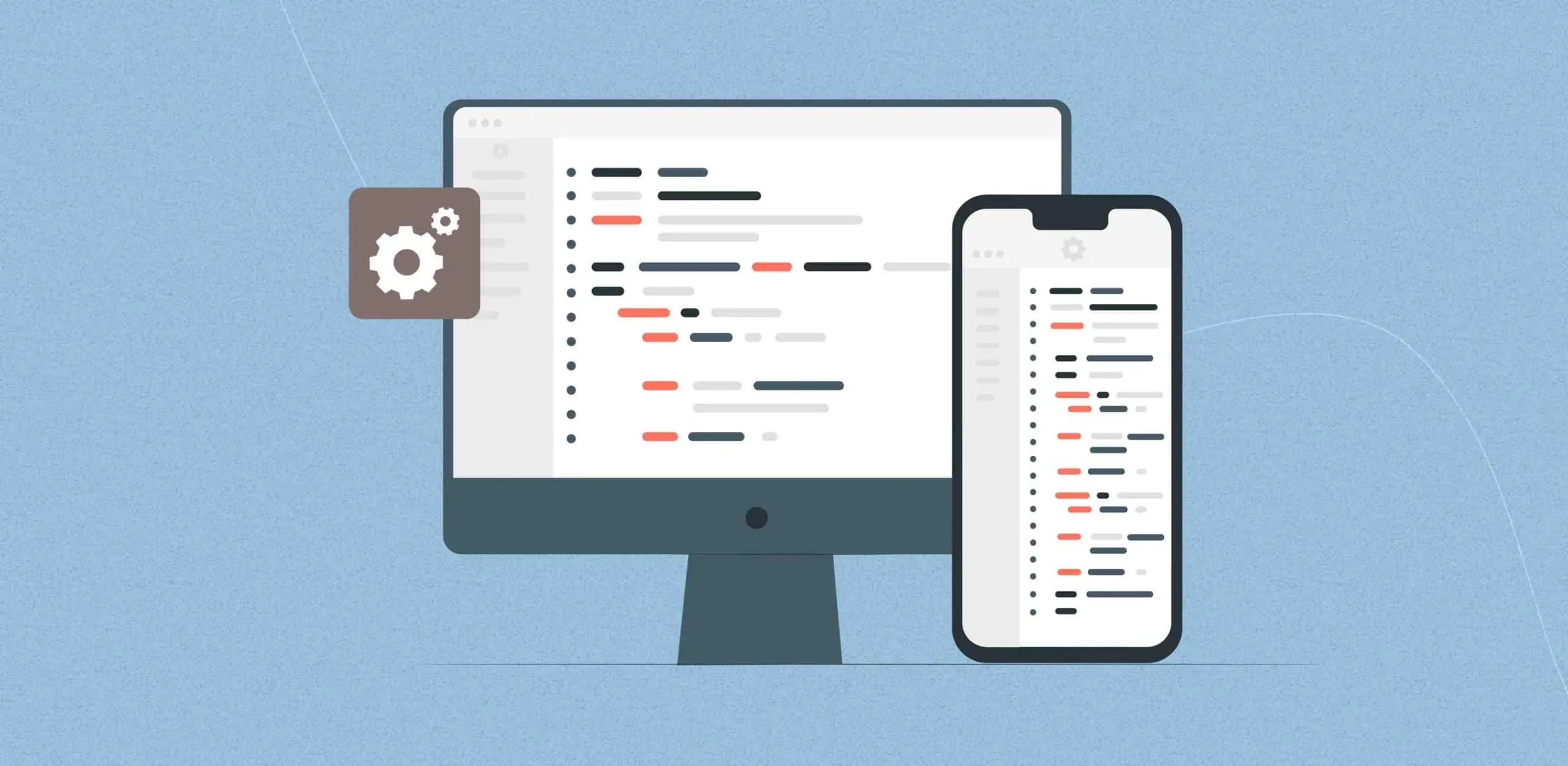Introduction
Custom API integration services are the key to unlocking seamless communication between your business-critical applications. In a digital world where companies rely on diverse systems like CRMs, ERPs, eCommerce platforms, and analytics tools, disconnected software can lead to inefficiencies, data silos, and frustrating manual work.
When your tools don’t sync, your operations slow down. That’s where custom API integrations make a difference—by connecting your systems, automating workflows, and enabling real-time data exchange. However, building secure and scalable APIs isn’t just plug-and-play—it takes the right strategy and technical expertise.
That’s why partnering with a skilled software development company is essential. With the right team, you can streamline business systems, eliminate redundancies, and create a digital infrastructure that supports long-term growth.
What is API Integration?
An API (Application Programming Interface) acts as a messenger between two software applications, allowing them to share data and functionalities.
Think of it like this:
- You’re using a CRM like Salesforce.
- You want to sync your customer data with your email marketing tool.
- Instead of manually exporting and importing data, an API integration connects both systems, automating the data flow in real time.
Now, imagine doing this across dozens of tools—accounting, payment processing, inventory management, HR systems—the value multiplies.
There are two types of API integrations:
- Third-party API integrations: Connecting with tools like Stripe, Shopify, or Zoom.
- Custom API integrations: Built specifically for your internal systems or tailored business logic.
While off-the-shelf APIs are great, custom integrations allow you to control how data flows between systems, optimize performance, and tailor functionality to your unique workflows.
Not sure where to start with API integration? Our experts are here to guide you—let’s discuss your use case.
Why Custom API Integration is Crucial for Modern Businesses?
As modern businesses expand their digital ecosystems, they often adopt a wide variety of software tools—each designed for specific functions like customer management, sales, finance, or logistics. While these tools are powerful individually, the real value emerges when they work together as one cohesive system. That’s exactly what custom API integration services are designed to achieve.
Let’s explore the key reasons why custom API integration is not just beneficial, but essential for scaling and succeeding in today’s competitive environment:
Eliminates Manual Work
Manual data transfer between systems is not only time-consuming but also resource-intensive. With custom API integrations in place, repetitive tasks—like syncing customer records between your CRM and email marketing tool or updating stock levels between your eCommerce platform and inventory system—are fully automated.
This automation reduces the need for manual intervention, freeing up your team to focus on strategic initiatives rather than administrative overhead.
Reduces Errors
Manual data entry is prone to human error. Whether it’s entering incorrect numbers, duplicating entries, or missing crucial fields, these mistakes can have serious consequences—especially in finance, compliance, or customer service.
Custom API integrations ensure data consistency by eliminating manual inputs and automating data flow. Since information moves directly between systems in real time or scheduled intervals, the risk of errors is significantly minimized.
Improves Operational Efficiency
When systems are integrated, teams no longer need to switch between platforms or rely on outdated reports to make decisions. For example, integrating your sales CRM with your invoicing software means your finance team can instantly generate accurate invoices the moment a deal is closed—without delays or additional inputs.
With data moving seamlessly between applications, your operations run smoother, faster, and with fewer bottlenecks. This translates to improved employee productivity, better customer experiences, and more agile decision-making.
Enables Real-Time Insights
In today’s business climate, real-time access to data is critical. Whether it’s tracking customer interactions, monitoring inventory levels, or analyzing marketing performance, decision-makers need up-to-the-minute information to respond quickly and effectively.
Custom API integrations enable real-time data sharing between systems, so you can generate live dashboards, reports, and alerts. This not only enhances transparency but also empowers you to act on data as it happens—turning insights into action without delay.
Supports Scalability
As your business grows, so does your need for additional software, data, and processes. A well-designed API integration infrastructure makes it easy to scale. You can add new tools, expand your operations, or onboard new teams without rebuilding your tech stack from scratch.
For example, if you decide to expand internationally and need a new logistics provider or payment gateway, you can quickly integrate them into your existing system through custom APIs. This adaptability ensures your technology supports your growth, rather than slowing it down.
How a Software Development Company Adds Value?
When considering API integration for your business, it’s natural to ask: Should we handle this in-house or bring in external expertise? While your internal team may be capable of managing smaller tasks, integrating multiple systems across departments and platforms demands more than just basic development knowledge. It requires a strategic approach, deep technical skill, and ongoing support.
This is where partnering with a software development company specializing in custom API integration services truly makes a difference. Here’s how such a partnership adds tangible value to your business:
Expert System Audit and Analysis
Before a single line of code is written, experienced API integration providers begin with a comprehensive audit of your existing digital ecosystem. This includes:
- Understanding your business goals and workflows
- Reviewing current applications and platforms in use
- Identifying potential bottlenecks and inefficiencies
- Assessing compatibility and integration feasibility
This discovery phase allows the development team to create a strategic plan that aligns your technical requirements with your operational needs—laying a strong foundation for successful API implementation.
Tailored API Architecture and Design
Unlike off-the-shelf solutions, custom API integration services are designed around your unique infrastructure. A professional team creates APIs that match your exact data formats, business logic, and process flows.
Whether you need RESTful APIs, GraphQL, or SOAP-based services, the right partner ensures your endpoints are:
- Scalable for future growth
- Modular for easier updates
- Documented for internal use
- Aligned with third-party API requirements when needed
This tailored approach ensures seamless communication across systems without forcing your business to adapt to rigid, pre-built connectors.
Secure, Scalable Development and Rigorous Testing
Once the architecture is defined, seasoned developers step in to build high-quality, performance-optimized APIs. Using industry best practices, they create:
- Secure authentication and authorization mechanisms (OAuth2, JWT, etc.)
- Efficient request/response handling
- Error detection and logging systems
- Robust data validation and transformation routines
Each integration is tested thoroughly across multiple scenarios—unit testing, integration testing, and user acceptance testing (UAT)—to ensure it works flawlessly in your production environment. The goal is to avoid downtime and ensure that all connected systems function as expected from day one.
Comprehensive Documentation and Ongoing Support
Even the most well-built API is only as good as the documentation that supports it. That’s why trusted API development service providers deliver detailed, developer-friendly documentation alongside your project. This includes:
- Endpoint specifications
- Authentication methods
- Data formats and expected responses
- Troubleshooting guides and sample queries
Beyond delivery, the company also offers long-term maintenance and support to handle:
- API version upgrades
- Integration with new tools or systems
- Bug fixes and performance optimization
- Ongoing monitoring and alerts for anomalies
This post-launch support ensures that your APIs remain reliable and adaptable over time.
Built-In Security and Compliance
Security is a top priority in API development, especially when dealing with sensitive business, customer, or financial data. Professional API integration partners incorporate strong security measures from the start, such as:
- Encryption of data in transit and at rest
- Role-based access control (RBAC)
- Secure token-based authentication
- Rate limiting and throttling to prevent abuse
- Logging and audit trails for compliance
Moreover, experienced teams stay up to date with regulatory requirements such as GDPR, HIPAA, PCI-DSS, and other industry-specific standards—ensuring your integration meets all necessary compliance benchmarks.
Future-Proofing Your Digital Ecosystem
Perhaps one of the most underrated benefits of working with a software development company is the long-term value it provides. The architecture, scalability, and modularity built into your custom API integrations allow your business to:
- Quickly onboard new tools or services
- Scale operations without reworking your tech stack
- Maintain high performance as your user base grows
- Stay agile in an evolving digital landscape
In short, your integration is not just a one-time solution—it’s an investment in future-readiness.
Common Systems That Benefit from API Integration
Nearly every modern business operates with a suite of software tools designed to manage specific functions—customer relationships, finance, sales, HR, analytics, and more. However, when these platforms operate in isolation, efficiency suffers. Custom API integration services enable seamless data exchange between systems, making your tech stack smarter and more connected.
Here’s a closer look at the most common systems that benefit from robust API integrations:
CRM Platforms
Popular examples: Salesforce, HubSpot, Zoho CRM
Customer Relationship Management (CRM) platforms are at the heart of many businesses, capturing critical customer data across interactions. With API integrations, you can sync your CRM with marketing automation tools, customer support platforms, and sales enablement systems. This ensures real-time access to updated customer profiles, lead activity, and support history across departments—without manual updates or data duplication.
Integration benefits:
- Trigger email workflows based on sales activity
- Sync support tickets and chat history into CRM records
- Share customer data with accounting or billing systems
ERP Systems
Popular examples: SAP, Oracle NetSuite, Microsoft Dynamics
Enterprise Resource Planning (ERP) systems manage core business processes like finance, supply chain, procurement, and inventory. These are often complex platforms, and integrating them with other business applications through custom APIs helps unify operations, improve reporting accuracy, and reduce administrative overhead.
Integration benefits:
- Link ERP with your eCommerce platform for real-time inventory sync
- Automate invoice creation from CRM deal closures
- Connect procurement data with warehouse and logistics tools
E-commerce Platforms
Popular examples: Shopify, WooCommerce, Magento
E-commerce businesses rely on efficient coordination between storefronts, payment systems, logistics providers, and customer service platforms. API integrations help automate workflows from order placement to fulfillment, enabling businesses to scale operations and enhance customer experience.
Integration benefits:
- Automatically sync orders, returns, and tracking with ERP or inventory systems
- Update product availability and pricing across platforms in real time
- Integrate with marketing tools for abandoned cart follow-ups
Payment Gateways
Popular examples: Stripe, PayPal, Razorpay
Payment gateway integrations ensure smooth, secure financial transactions on your digital platforms. Beyond processing payments, APIs allow businesses to track transactions, manage refunds, reconcile accounts, and improve financial transparency by integrating gateways with accounting and reporting tools.
Integration benefits:
- Automate transaction data export to your accounting software
- Generate custom receipts and invoices
- Implement fraud detection and risk management workflows
HR & Payroll Systems
Popular examples: BambooHR, Workday, ADP
Managing people and payroll involves multiple systems—from recruiting tools to time-tracking and performance management platforms. Custom API integrations help unify employee data, streamline onboarding processes, and automate payroll functions, leading to fewer errors and more productive HR teams.
Integration benefits:
- Auto-sync new hire data from recruitment platforms to HR systems
- Automate leave balance updates and approval workflows
- Export payroll summaries to finance systems for processing
Analytics & Business Intelligence Tools
Popular examples: Google Analytics, Mixpanel, Power BI
Modern businesses run on data. But when that data is scattered across systems, it becomes hard to act on. API integrations allow analytics tools to pull data from multiple sources into unified dashboards, enabling better insights and faster decision-making.
Integration benefits:
- Create a central dashboard pulling live data from CRM, eCommerce, and ERP
- Set up automated KPI reporting based on real-time system performance
- Detect anomalies by combining operational and financial data
Legacy Systems
Even older, on-premise, or custom-built systems can benefit from API integration. With the right strategy, APIs can act as a bridge—enabling data exchange between legacy platforms and modern cloud-based software. This extends the lifespan of your existing investments and avoids the cost and disruption of replacing legacy systems.
Integration benefits:
- Expose data from legacy software to web or mobile apps
- Enable cloud-based analytics on on-premise systems
- Integrate with modern platforms like Salesforce or QuickBooks without major rewrites.
Benefits of Choosing a Dedicated API Integration Partner
When it comes to connecting your systems and building seamless workflows, choosing a dedicated API integration partner is one of the most strategic decisions you can make. While it may be tempting to delegate integrations to an in-house team or rely on off-the-shelf connectors, the reality is that every business has unique needs—and a one-size-fits-all solution rarely delivers long-term value.
Here’s a deeper look at why partnering with an experienced team makes all the difference:
Customization Aligned to Business Logic
A dedicated integration partner doesn’t just “plug things in.” They take the time to understand your processes, map your data flow, and build integrations that align with your exact business logic and operational goals. Whether you need a bi-directional sync between your CRM and ERP, or a custom workflow that triggers notifications, inventory updates, and reporting—all at once—customization is key.
Rather than adapting your workflows to generic API templates, a skilled team ensures the API architecture adapts to you.
Security-First Development Approach
With increasing concerns around data breaches and regulatory compliance, security cannot be an afterthought. A dedicated API team builds integrations with a security-first mindset from day one. This includes:
- OAuth2 and JWT-based authentication to safeguard access
- Secure data transmission using HTTPS and encryption protocols
- API gateway configurations for rate limiting, request validation, and IP whitelisting
- Compliance adherence (GDPR, HIPAA, PCI-DSS), where applicable
These measures protect both your data and your customers, ensuring your integration is both functional and safe.
Future-Proof Architecture
Business systems evolve. You might upgrade your ERP, change your CRM, or expand into new regions with different software requirements. A dedicated partner designs API integrations with scalability and flexibility in mind. This includes:
- Modular API design for easier maintenance and upgrades
- Version control for smooth transitions
- Compatibility with cloud, on-premise, or hybrid environments
The result? Your integration remains stable and functional—even as your systems grow or shift.
Ongoing Support and Maintenance
API integration is not a one-and-done task. Once the APIs are deployed, they require regular monitoring, updates, and sometimes quick fixes. A trusted integration partner offers:
- SLA-based support and ticketing systems
- Proactive monitoring and performance tuning
- Fast resolution of bugs or system mismatches
- Regular upgrades as platforms evolve
This level of support gives you peace of mind knowing that someone is always there to keep your systems running smoothly.
Strategic Guidance and Best Practices
Beyond technical execution, an experienced API integration partner acts as a strategic advisor. They help you:
- Choose the right APIs and integration patterns (REST, SOAP, GraphQL)
- Evaluate third-party API documentation and dependencies
- Plan phased rollouts and MVPs for complex projects
- Mitigate risks in high-stakes integration (e.g., financial data, real-time operations)
This level of strategic insight ensures your API investments deliver measurable ROI and business agility.
Key Features of a Successful Custom API Integration
A successful API integration goes beyond just connecting two systems—it’s about ensuring that data flows smoothly, securely, and reliably across platforms. Whether you’re integrating an ERP system with a CRM or syncing your eCommerce platform with payment gateways, high-quality custom API integration services must include several critical features.
Here’s a breakdown of the essential components that make an API integration effective and future-ready:
Authentication & Authorization
Every secure API begins with proper authentication and authorization mechanisms. These protocols ensure that only approved users and systems can access sensitive data or perform specific actions.
Modern authentication standards used in custom API development include:
- OAuth 2.0: Enables secure access without exposing user credentials.
- API Keys: Simple, unique keys used to identify calling programs.
- JWT (JSON Web Tokens): Compact tokens that carry identity claims and permissions.
By implementing these standards, your API integration partner helps you maintain strong security controls and meet compliance standards like GDPR or HIPAA.
Error Handling & Logging
Errors are inevitable—but how you handle them determines the resilience of your systems. Proper error handling ensures that unexpected issues don’t crash your entire operation.
A successful API should:
- Return clear and structured error messages (like HTTP status codes with details).
- Log all error events for audit and debugging purposes.
- Provide graceful fallbacks (e.g., retry mechanisms or user-friendly error prompts).
Effective logging and alerting also help developers pinpoint issues faster, reducing downtime and maintaining business continuity.
Rate Limiting
As your systems scale, it’s essential to protect your APIs from being overwhelmed by excessive or malicious requests. Rate limiting prevents abuse and ensures fair use of server resources.
This feature:
- Defines how many API calls a user or application can make in a given time window.
- Helps avoid performance degradation due to request spikes.
- Protects backend services from overconsumption or denial-of-service attacks.
Well-configured throttling policies keep your services fast, stable, and scalable.
Data Transformation
Different systems often speak different “languages.” One tool may require data in JSON, while another expects XML—or you might need to convert currencies, timestamps, or unit measurements.
A high-quality API development service includes robust data transformation features that:
- Convert and map data formats between systems.
- Normalize fields (e.g., converting names, dates, or phone numbers).
- Enrich or filter data as required for the destination system.
This ensures seamless communication and compatibility across all connected platforms.
Real-time vs Batch Sync
Choosing the right data sync method is critical for performance and resource optimization. Depending on your use case, your integration may require:
- Real-time synchronization: For time-sensitive actions like payment confirmations, stock updates, or user sign-ins.
- Batch processing: For periodic data updates like reports, user logs, or daily summaries.
Your API integration should support both models or even hybrid approaches, depending on the business requirements and system load.
Monitoring & Alerts
Once your APIs are live, continuous monitoring is essential to keep everything running smoothly. Monitoring provides visibility into the health, usage, and performance of your integrations.
Key elements include:
- Real-time dashboards displaying API metrics (latency, request volume, error rates).
- Automated alerts via email, SMS, or dashboard notifications if issues arise.
- Anomaly detection to flag unusual behavior or potential breaches.
Monitoring ensures proactive maintenance and a quick response to any potential disruptions, ultimately protecting your end-user experience
Things to Consider Before Starting an API Integration Project
Before diving into an API integration project, it’s essential to have a clear understanding of your business landscape, technical environment, and regulatory obligations. Making the right decisions upfront helps ensure that your custom API integration is not only effective but also scalable, secure, and aligned with your business objectives.
Here are the key considerations to evaluate before starting:
What Are Your Business Goals?
Start by defining the outcomes you expect from the integration. Are you looking to automate repetitive tasks? Improve data accuracy? Create a unified view of customer information? Reduce processing time?
Clearly outlining your objectives will guide every other step in the process—from choosing the right API architecture to prioritizing features and designing user workflows. These goals should be specific, measurable, and tied to business KPIs to ensure success.
What Systems Are Involved?
Take a comprehensive inventory of all the systems, tools, and platforms that need to be integrated. This could include:
- CRMs (like Salesforce, HubSpot)
- ERPs (such as SAP, NetSuite)
- eCommerce platforms (like Shopify, Magento)
- Accounting or invoicing tools
- Marketing automation platforms
- Payment gateways
- Custom internal applications
For each system, assess its existing API capabilities, supported protocols (REST, SOAP, GraphQL), and any limitations or usage restrictions. Identifying these early on helps avoid roadblocks during the development phase.
What’s Your Current Infrastructure?
Understanding your existing IT environment is crucial for choosing the right integration strategy. Ask yourself:
- Are your applications hosted on the cloud, on-premise, or a mix of both (hybrid)?
- Do your systems use microservices or a monolithic architecture?
- Are you using containers or orchestration tools like Kubernetes?
Your infrastructure will determine how the APIs are deployed, secured, and scaled. For example, cloud-native solutions may allow for easier scalability, while on-premise environments may require additional security configurations and firewall exceptions.
Do You Need Real-Time or Periodic Syncs?
Deciding on the frequency of data synchronization is critical to both system performance and user experience. Generally, API integrations fall into two categories:
- Real-time sync: Data is updated instantly between systems. This is essential for time-sensitive operations like order processing, customer support, and inventory updates.
- Batch/Periodic sync: Data is transferred at set intervals—hourly, daily, or weekly. This is more efficient for large data transfers or reporting functions that don’t require immediate updates.
Your choice will impact how the API is designed and the resources it consumes, especially when dealing with high transaction volumes or latency-sensitive workflows.
Are There Any Compliance Requirements?
If your business handles sensitive or regulated data, your API integration must comply with relevant security and privacy laws. Some of the most common regulations include:
- HIPAA (for healthcare data)
- GDPR (for data protection in the EU)
- PCI-DSS (for payment processing)
Consider the following during planning:
- Is the data encrypted during transmission and at rest?
- Are proper authentication and authorization protocols in place (e.g., OAuth2, JWT)?
- Do logs and audit trails meet compliance standards?
Compliance isn’t just a legal necessity—it also builds trust with your users and stakeholders.
What’s Your Budget and Timeline?
Custom API integrations vary significantly in cost and duration depending on complexity, number of systems, and level of customization required. Before you begin, set a realistic budget and timeline by considering:
- Scope of work (simple two-system sync vs. multi-platform orchestration)
- Required features (e.g., transformation logic, retry mechanisms, error handling)
- Internal vs. external development resources
- Project dependencies (third-party vendors, legacy systems, regulatory approvals)
Having a defined budget and timeline helps you prioritize tasks, identify potential risks, and set stakeholder expectations upfront. It also enables your API integration partner or software development company to allocate resources efficiently and deliver a high-quality solution on time.
How to Choose the Right API Integration Service Provider?
Choosing the right API integration partner is a critical decision that can determine the success or failure of your integration project. While many firms claim to offer API development services, not all are equipped to handle the complexity, scale, and security demands of a modern business environment. Here are the essential factors you should consider when evaluating a software development company for your custom API integration services:
Proven Experience
Start by examining the provider’s track record. Look for real-world case studies, client testimonials, and portfolios that demonstrate their experience with API integrations—especially within your industry or with similar technologies. A company with hands-on experience will understand common pitfalls and deliver smoother implementations.
Ask these questions:
- Have they built integrations with the platforms you’re using (e.g., Salesforce, SAP, Shopify)?
- Can they showcase measurable business improvements from past projects?
- Are they familiar with both modern APIs and legacy systems?
Technical Expertise
API development isn’t one-size-fits-all. A competent provider must have deep knowledge of multiple API styles and protocols, including:
- REST (Representational State Transfer) – the most commonly used protocol for web APIs.
- SOAP (Simple Object Access Protocol) – often used in enterprise applications like banking and healthcare.
- GraphQL – a modern approach that allows more flexible and efficient data querying.
Beyond API protocols, the provider should be proficient in your tech stack—whether that’s Node.js, Python, Java, or other frameworks. Their ability to integrate seamlessly with your existing architecture ensures faster development and lower maintenance costs.
Security Practices
Security should be a top priority in any API integration project. Your provider should adhere to industry best practices and implement robust security mechanisms, including:
- Token-based authentication (e.g., OAuth2, JWT)
- Encryption protocols (TLS/SSL)
- Rate limiting and throttling to prevent abuse
- Audit logs and error handling
Additionally, if your business operates in regulated industries (such as healthcare or finance), confirm that the company is familiar with compliance standards like HIPAA, GDPR, or PCI-DSS.
Communication & Documentation
A reliable API integration partner will maintain transparent communication throughout the project lifecycle. From discovery and planning to development and deployment, they should involve you at each stage and provide regular updates.
Clear and thorough API documentation is also non-negotiable. This documentation should include:
- API endpoints and usage
- Authentication methods
- Sample requests/response
- Error codes and handling
Good documentation makes it easier for your internal teams to understand, use, and maintain the integration in the long run.
Scalability
The goal of API integration isn’t just to solve today’s problem—it’s to future-proof your systems. Ensure that your provider builds scalable APIs that can evolve with your business needs.
Scalability considerations include:
- Can the API handle increased traffic as your user base grows?
- Is it flexible enough to accommodate additional features or integrations?
- Will it support both real-time and batch processing needs?
A forward-thinking approach prevents the need for rework and ensures long-term ROI on your integration efforts.
Post-Launch Support
Deployment is just the beginning. APIs require continuous monitoring, version control, bug fixing, and sometimes feature enhancements. Choose a partner who offers post-launch support and has well-defined SLAs (Service Level Agreements) for:
- Issue resolution timelines
- API versioning and upgrades
- Ongoing performance monitoring
This ensures that your systems continue to function smoothly and securely well beyond go-live.
Conclusion
In a world of digital complexity, custom API integration isn’t just a luxury—it’s a necessity. Whether you’re syncing data across CRMs, ERPs, or eCommerce platforms, a well-executed integration can drastically improve efficiency, reduce errors, and support your growth goals.
By working with the right software development company and trusted API integration partner, you gain a scalable, secure, and future-proof system that keeps your business ahead of the curve.
If you’re looking for custom API integration services tailored to your business needs, we’re here to help. Our experienced team delivers robust, secure, and scalable API development services that align with your long-term goals.
Contact us today to discuss how we can help you streamline business systems and unlock true operational efficiency.
Let’s transform your business for a change that matters.
F. A. Q.
Do you have additional questions?
What is the importance of an API for software development and integration?
APIs (Application Programming Interfaces) are essential for enabling different software applications to communicate and share data. They allow developers to build modular, scalable systems by integrating third-party services or custom functionalities without reinventing the wheel. APIs make software more flexible, connected, and future-proof.
How can API-based integration improve software interoperability?
API-based integration acts as a bridge between different platforms, allowing them to exchange data and functions seamlessly. This eliminates the need for manual data entry, reduces errors, and ensures consistent information across all systems—improving overall software interoperability and business efficiency.
What are custom API integrations?
Custom API integrations are tailor-made connectors developed specifically to meet your business needs. Unlike off-the-shelf APIs, custom integrations align with your internal processes, systems, and data flows. They offer more control, flexibility, and performance for unique use cases or complex software environments.
How do APIs facilitate integration between different software applications?
APIs expose specific data and functionalities of one application to another in a secure and structured way. For example, an API can allow your CRM to automatically send customer data to your email marketing tool or sync payment information with your accounting software—automating workflows across platforms.
What systems can benefit from custom API integration services?
Almost every business system can benefit from API integration, including CRMs (like Salesforce), ERPs (like SAP), eCommerce platforms (like Shopify), payment gateways (like Stripe), HR systems, logistics software, and analytics platforms. Custom integrations ensure these systems work together efficiently and securely.
How do I know if my business needs a custom API integration?
If your team is manually transferring data between systems, struggling with duplicate entries, or facing delays due to disconnected software, it’s likely time to consider a custom API integration. It’s especially valuable if you use niche or legacy systems that don’t offer out-of-the-box integrations.
What’s the difference between REST, SOAP, and GraphQL APIs?
- REST: Most common; uses simple HTTP calls and supports multiple data formats (like JSON).
- SOAP: More structured and secure; often used in enterprise and legacy systems.
- GraphQL: Flexible and modern; lets clients request exactly the data they need.
reliable API development service provider will help choose the right protocol based on your requirements.
How secure is API integration, and what should I look for?
API security is critical. Look for implementations that include:
- OAuth2 or JWT authentication
- HTTPS encryption
- Rate limiting and logging
- Input validation and error handling
A trustworthy software development company will follow these best practices and ensure your integration complies with data protection regulations like GDPR or HIPAA.
How long does it take to build a custom API integration?
The timeline varies based on complexity, number of systems involved, and integration requirements. Simple integrations may take a few weeks, while more complex, enterprise-level solutions may require several months. A good API integration partner will provide a clear timeline and phased roadmap.
Will I receive support and documentation after the API integration is complete?
Yes—professional custom API integration services include detailed documentation outlining API endpoints, usage instructions, and error handling. Reputable providers also offer post-launch support for maintenance, updates, and troubleshooting to ensure your systems continue running smoothly.















